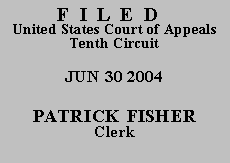

| BOBBY CAMP,
Plaintiff-Appellant, v. JO ANNE B. BARNHART, Commissioner, Social Security Administration, Defendant-Appellee. |
|
argument. See Fed. R. App. P. 34(f); 10th Cir. R. 34.1(G). The case is therefore ordered submitted without oral argument.
Plaintiff-appellant Bobby Camp appeals the district court's order affirming the Commissioner's decision to deny his application for Social Security disability benefits. He alleges disability due to back pain, mental impairments, hypertension, diabetes, and limitations imposed by obesity. At step five of the five-step sequential evaluation process, see Williams v. Bowen, 844 F.2d 748, 750-52 (10th Cir. 1988) (discussing five steps), an administrative law judge (ALJ) determined that Mr. Camp could perform a limited range of light and sedentary work that existed in significant numbers in the regional and national economies. Accordingly, the ALJ held that Mr. Camp was not disabled within the meaning of the Social Security Act and was, therefore, not entitled to disability benefits.(1) We have jurisdiction under 42 U.S.C. § 405(g) and 28 U.S.C. § 1291. We affirm.
On appeal, Mr. Camp asserts that the ALJ erred by failing to recognize and consider his severe mental impairments and the limitations imposed by his obesity. We review the Commissioner's decision to determine whether the factual findings are supported by substantial evidence and whether the correct legal standards were applied. Threet v. Barnhart, 353 F.3d 1185, 1189 (10th Cir. 2003). "Substantial evidence is such relevant evidence as a reasonable mind might accept as adequate to support a conclusion." Hamlin v. Barnhart, 365 F.3d 1208, 1214 (10th Cir. 2004) (further quotation omitted).
Mr. Camp argues that the ALJ improperly determined that his mental impairments were not severe, despite evidence to the contrary. Our review of the administrative record raised one concern: Mr. Camp's Global Assessment of Functioning (GAF) score of 50. A GAF score of 41-50 indicates "[s]erious symptoms . . . OR any serious impairment in social, occupational, or school functioning." American Psychiatric Assoc., Diagnostic and Statistical Manual of Mental Disorders 32 (4th ed. 2000). But the mental health evaluator did not indicate that Mr. Camp's GAF score impaired his ability to work. The score, without evidence that it impaired Mr. Camp's ability to work, does not establish an impairment. Cf. Howard v. Comm'r of Soc. Sec., 276 F.3d 235, 241 (6th Cir. 2002) (holding "ALJ's failure to reference the GAF score in the RFC, standing alone, does not make the RFC inaccurate").
Mr. Camp also asserts that the ALJ erroneously discounted his mental impairments because he did not obtain enough medical treatment. This argument misstates the ALJ's findings that Mr. Camp had not received mental health treatment during the relevant time period except for prescribed medications, and his physicians had not referred him for mental health treatment. Aplt. App. at 27. These findings are supported by substantial evidence, as are the additional findings that the mental health evaluation demonstrated that Mr. Camp's mental problems resulted in no more than mild restrictions. See id. at 27, 253.
Mr. Camp further claims that the ALJ failed to evaluate properly the impact of his obesity on his impairments or to consider the effect of his obesity on his residual functional capacity (RFC). But the record shows that the ALJ specifically considered Mr. Camp's obesity and its effect on his RFC. See Aplt. App. at 27 (ALJ's holding that "the medical evidence, including the neurological findings, show [that Mr. Camp's] weight would not prevent [him] from performing light work with the limitations listed"). Moreover, Mr. Camp does not point to evidence that contradicts the ALJ's conclusion. In fact, the medical reports, which acknowledge Mr. Camp's obesity, support the ALJ's RFC determination.
For his next argument, Mr. Camp alleges that in evaluating his obesity, the ALJ improperly relied on the opinion of his treating physician, Dr. Bisson, that he could perform light duty work, as contemplated in the workers' compensation context. He contends that such reliance was improper because the meaning of "light duty work" for workers' compensation purposes is not the same as "light work" as defined by Social Security regulations. We need not examine any differences in these definitions because here, the ALJ's decision was aided by the testimony of a vocational expert who opined that Mr. Camp could perform jobs available in the regional and national economies despite the limitations found by the ALJ, which, in turn, were based on Dr. Bisson's expert opinion. See Aplt. App. at 59, 67, 193 (ALJ incorporated Dr. Bisson's limitations for "light duty work" in his hypothetical question posed to the vocational expert). Accordingly, we hold that the ALJ applied the correct legal standards and his factual findings are supported by substantial evidence in the record.
The judgment of the district court is AFFIRMED.
Entered for the Court
Senior District Judge
*. This order and judgment is not binding precedent, except under the doctrines of law of the case, res judicata, and collateral estoppel. The court generally disfavors the citation of orders and judgments; nevertheless, an order and judgment may be cited under the terms and conditions of 10th Cir. R. 36.3.
2. The Honorable John L. Kane, Senior District Judge, United States District Court for the District of Colorado, sitting by designation.
1. The ALJ ruled that Mr. Camp was disabled for the closed period from October 7, 1996 to January 6, 1999. This appeal challenges the ruling that he was not disabled after January 6, 1999.